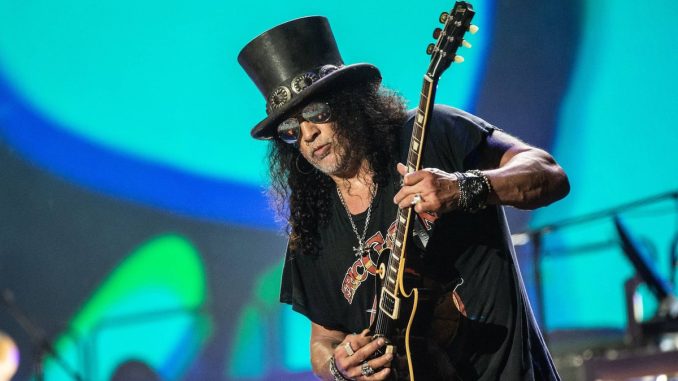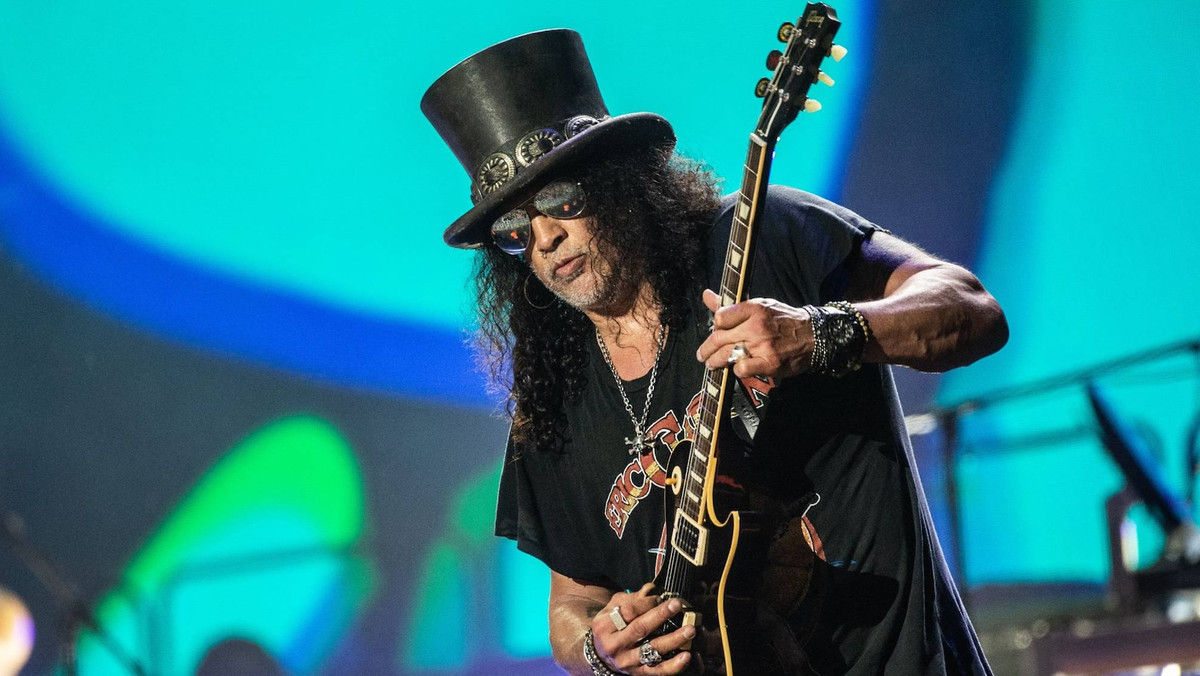
Few guitarists embody the spirit of rock ‘n’ roll like Slash — the top-hatted Les Paul hero whose fiery, melodic solos have become anthems in themselves. But even for someone as seasoned and instinctive as him, revisiting old material live can be both thrilling and challenging.

In a recent interview, Slash opened up about the complex relationship between a guitarist and their own recorded solos, explaining why deviating from the original can sometimes feel like walking a tightrope.
“When you play something live that’s different from what’s on the record, it’s a double-edged sword,” Slash said. “On one hand, it keeps things exciting, you’re in the moment, feeding off the energy of the crowd. But on the other, there’s that sense that if you don’t play it exactly how people remember it, you feel like you’re missing something.”
The Balancing Act Between Improvisation And Expectation
Slash, known for iconic solos like “Sweet Child O’ Mine,” “November Rain,” and “Anastasia,” has always been an improviser at heart. Yet he admits that fans’ expectations can weigh heavily, after all, many concertgoers have grown up hearing those solos note for note.
“There are certain songs where people expect that solo — and they should,” he continued. “It’s part of the song. But sometimes, when you’re playing live, you’re in such a zone that you naturally change things. You might take a different turn, stretch a phrase, add a bend, and it feels great in that moment. But afterward, you’re like, ‘Man, that didn’t sound like the record!’”
This push and pull between precision and freedom has long been a defining trait of Slash’s live performances. While his recorded solos are meticulously crafted, his live renditions often feature extended phrasing, spontaneous runs, and emotional flourishes that make each show unique.
A Legacy Of Expression
For Slash, the goal isn’t to replicate perfection but to capture the same emotion that inspired the original take.
“I think the key is to keep the integrity of the solo, the melody, the phrasing, but still allow yourself to feel it in real time,” he said. “If you play it exactly the same every night, it can get stale. But if you go too far off, you lose the magic that made people love it in the first place.”
It’s that balance, between technical accuracy and expressive freedom, that defines his approach. Whether performing with Guns N’ Roses, Slash featuring Myles Kennedy & The Conspirators, or guesting with other artists, his solos always carry his unmistakable fingerprint: soulful bends, bluesy phrasing, and pure rock energy.
The Eternal Struggle Of The Guitar Hero
Slash’s reflections echo a common dilemma faced by many legendary guitarists, from Jimmy Page to Eddie Van Halen, the tension between being faithful to the record and honoring the moment. But in Slash’s case, the struggle is less about technicality and more about emotional authenticity.
“At the end of the day, music is about feel,” he concluded. “You just have to trust your instincts. Even if it’s not exactly the same as the record, as long as it comes from the same place, it’s real, and that’s what matters.”
And that, in true Slash fashion, is perhaps the most rock ‘n’ roll answer of all.
Leave a Reply